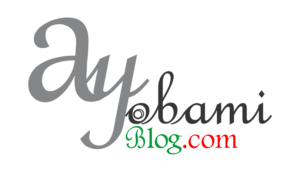The average retail price of Premium Motor Spirit (PMS), widely known as petrol, rose sharply to N1,239.33 per litre in April 2025, marking a 76.73% increase compared to N701.24 in April 2024, according to the latest report by the National Bureau of Statistics (NBS).
Despite this year-on-year surge, petrol prices slightly decreased by 1.77% on a month-to-month basis, down from N1,261.65 in March 2025.
Regional Price Breakdown
The report highlights striking disparities in petrol prices across Nigerian states:
Highest Prices:
Imo: N1,588.50
Jigawa: N1,567.84
Sokoto: N1,550.00
Lowest Prices:
Yobe: N970.00
Kwara: N1,014.85
Osun: N1,042.49
Zonal Averages
At the regional level, the South East recorded the highest average petrol price at N1,341.71, while the South West had the lowest at N1,138.64. The full breakdown:
South East: N1,341.71
North West: N1,325.90
North Central: N1,242.94
South South: N1,222.54
North East: N1,166.27
South West: N1,138.64
Despite government efforts to stabilize the downstream petroleum sector, fuel prices remain volatile nationwide.
Retail Market Trends
As of April 2025, petrol retailed at N935 per litre in Abuja and N880 in Lagos. The Dangote Refinery contributed to a temporary price dip, cutting its ex-depot price to N835 per litre, the second reduction within a week.
Fuel Prices Drive Inflation
The Central Bank of Nigeria’s April Inflation Expectation Survey underscores energy costs notably petrol, diesel, and electricity, as the top inflation driver, cited by 91% of respondents. Other inflationary pressures include:
Transportation costs (road, air, water, rail): 86.7%
Exchange rate volatility
Interest rates
Security concerns
The removal of fuel subsidies, along with added expenses like toll fees, port charges, storage fees, and insurance, has further escalated transport and logistics costs.
Slight Relief in Inflation Rate
Nigeria’s headline inflation eased marginally to 23.71% in April 2025, down from 24.23% in March, offering a modest reprieve amid economic strain. On a month-on-month basis, inflation growth slowed to 1.86%, compared to 3.90% in March.
Conclusion
While the marginal dip in inflation and petrol prices offers a sliver of hope, the data reflects persistent challenges in stabilizing fuel costs and curbing inflation. Energy and transportation remain central to Nigeria’s cost-of-living crisis, demanding urgent and sustainable policy interventions.
Credit: Nairametrics
Discover more from Ayobami Blog
Subscribe to get the latest posts sent to your email.











